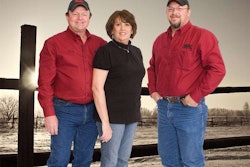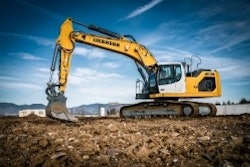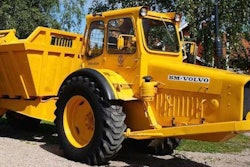Bidding on ARRA projects
The American Recovery and Reinvestment Act (ARRA) has specific provisions for projects funded by federal stimulus dollars. Here are some things you should know when you bid on an ARRA funded project:
Prevailing wages. Based on the Davis-Bacon Act, all contractors must pay workers in full at least once a week at a pay rate based on the prevailing wage for similar jobs in the area.
Pay rates for job levels must be posted on site.
E-Verify. The effective date of the final rule requiring federal contractors to use the Department of Homeland Security E-Verify internet system to determine an employee’s eligibility for employment in the United States is delayed until June 30, 2009. The rule affects federal contractors awarded new contracts after June 30, 2009, that includes the Federal Acquisition Regulation E-Verify clause. Employers must complete the new revised Form I-9 for each employee and keep it for either three years after the date of hire or for one year after employment is terminated, whichever is later. The form must be available for inspection by authorized U.S. government officials. Note: Contractors may not use E-Verify for current employees until they are awarded contracts after June 30 that include the E-Verify clause. E-Verify information is found at www.dhs.gov.
Fixed price/competitive procedures. Competitive bids that become ARRA funded contracts are awarded as fixed-price contracts, placing maximum cost overrun risk on contractors.
Green quotas. Twenty-five percent of ARRA funded education subgrants must be used to renovate and repair to meet green standards. Contractors are responsible for their employees’ green training and certifications.
Project materials auditing. Contractors can be asked to certify all iron, steel and manufactured goods on a project are U.S. made with exceptions determined by the federal department project head. Establish auditable recordkeeping and compliance measures to track products used on the project, especially imported products. Ask suppliers for country of origin documents for their products. Buy American regulations vary by funding agency.
For more information click www.Recovery.gov (not recovery.org).
– Georgia Krause
Intermat ’09
No big surprise here: Attendance was down 12 percent at Intermat, the construction equipment trade show held this April in Paris, France. Part of the international troika of construction equipment shows, which includes ConExpo-Con/Agg and Bauma, Intermat had the misfortune of being held in a year of almost universal recession. Still, the show was a chance to learn more about how companies are viewing the future:
IronPlanet – The U.S.-based online auction company IronPlanet has now held three European auctions and established an international call center in Dublin, Ireland, where customers can talk to a representative in one of 14 different languages. According to Greg Owens, chairman and CEO, the company is one of the few equipment success stories in the recession. The company had 2008 revenues of $337 million, a 45 percent year-over-year growth, and expects its 2009 revenues to approach $500 million.
Owens attributes much of the company’s growth to how well the company knows its clients – and the fact that most clients are both buyers and sellers. “For example, we know if someone is the second bidder on a machine, and let that person know if there’s a similar machine coming up for bid. We can see every move that person makes on our site, and know their interests, and the frequency in which they bid.”
He also credits this growth to an increased confidence in the company’s inspection services, which include around 50 pictures of each machine. “Seventy-five percent of our buyers are repeat buyers,” Owens says. “In a two year period, the average number of viewers per auction has gone from 1,600 to 15,000. And our international sales are now 27 percent of our total sales.”
– Marcia Gruver







